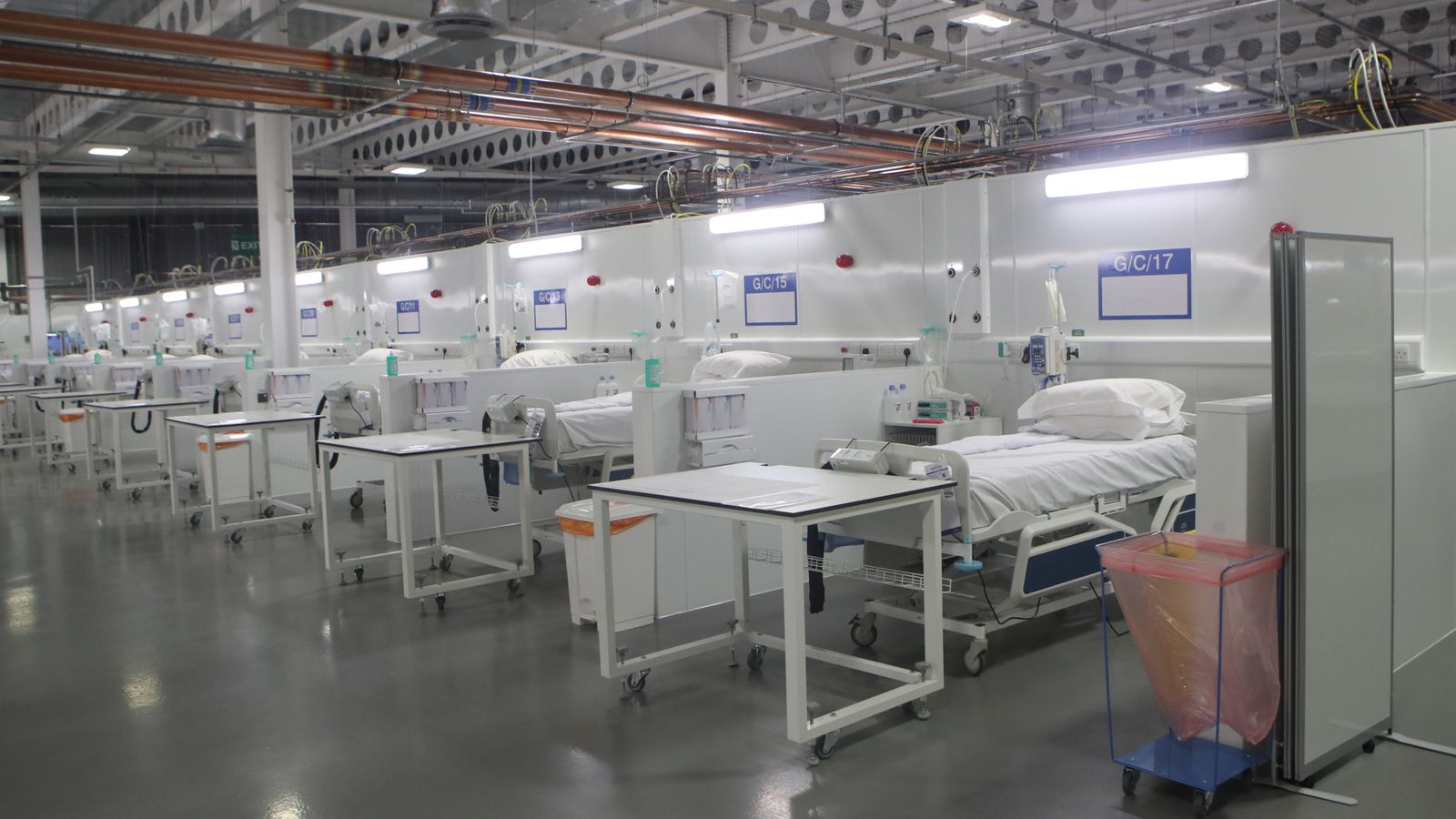Nightingale hospitals established to help the NHS cope with a surge in coronavirus cases will close from April.
NHS England said they were no longer required because existing hospitals have increased their bed capacity.
A network of seven Nightingale hospitals was set up in England last spring, amid worries that the health service could be overwhelmed by COVID-19 cases.
Live COVID updates from the UK and around the world
Please use Chrome browser for a more accessible video player
But they were by and large not needed, with some being stepped down to rehabilitation centres.
According to the Health Service Journal, the cost of the Nightingales will reach £532m by the end of the 2022 financial year.
An NHS spokeswoman said: “Since the very early days of the pandemic the Nightingale hospitals have been on hand as the ultimate insurance policy in case existing hospital capacity was overwhelmed.
“But, as we have learned more about coronavirus, and how to successfully treat COVID, existing hospitals have adapted to significantly surge critical care capacity, and even in the winter wave – which saw more than 100,000 patients with the virus admitted in a single month – there were beds available across the country.
“Thank you to the many NHS staff and partners who worked so hard to set the Nightingales up so swiftly and of course the public who followed the guidance on controlling the spread of the virus and helped to prevent hospitals being overwhelmed.”
Thanks to the vaccine rollout & our national effort, we can now stand down our Nightingale hospitals
This is such an important moment in our national recovery
THANK YOU to all involved in this incredible project pic.twitter.com/DdzS27b884
The spokeswoman added that vaccination services would continue at the London and Sunderland Nightingales to help the NHS jabs rollout.
Health Secretary Matt Hancock said the move marked an “important moment in our national recovery”.
In a video posted on his Twitter account, he said the hospitals were a “monument to this country’s ability to get things done fast when it really matters” and played a “critical role” in the UK’s response to coronavirus.






















